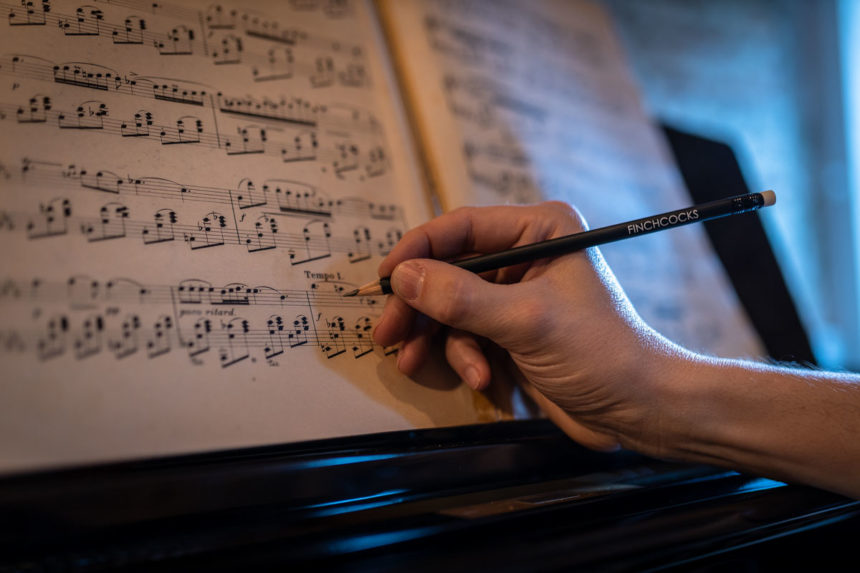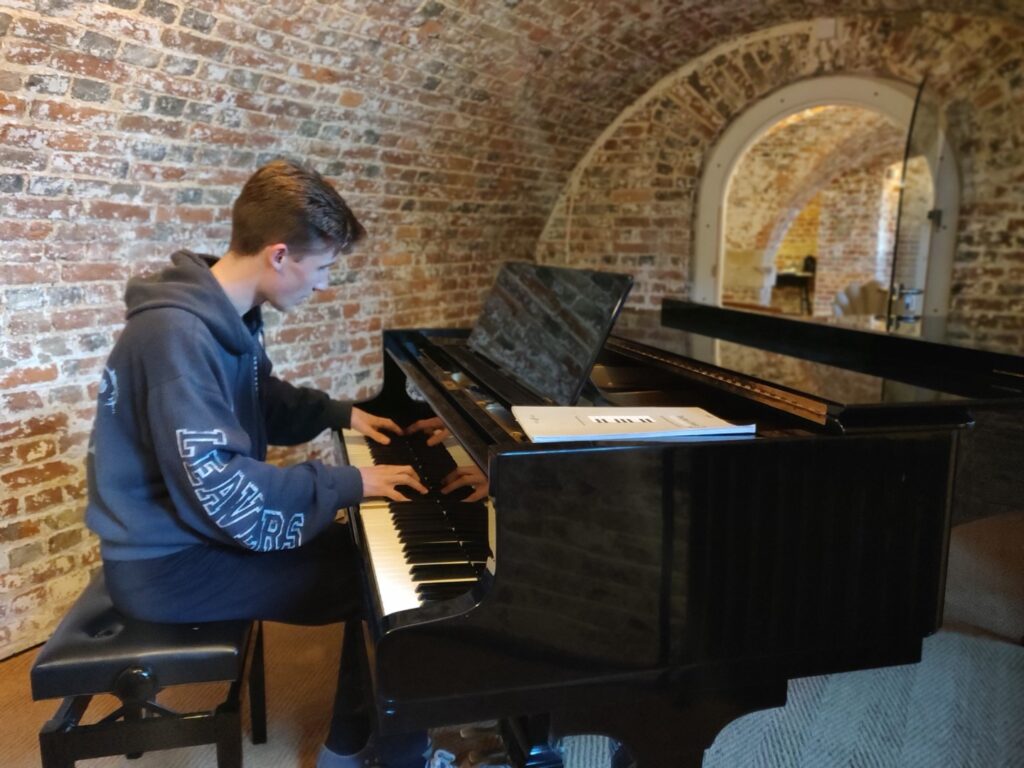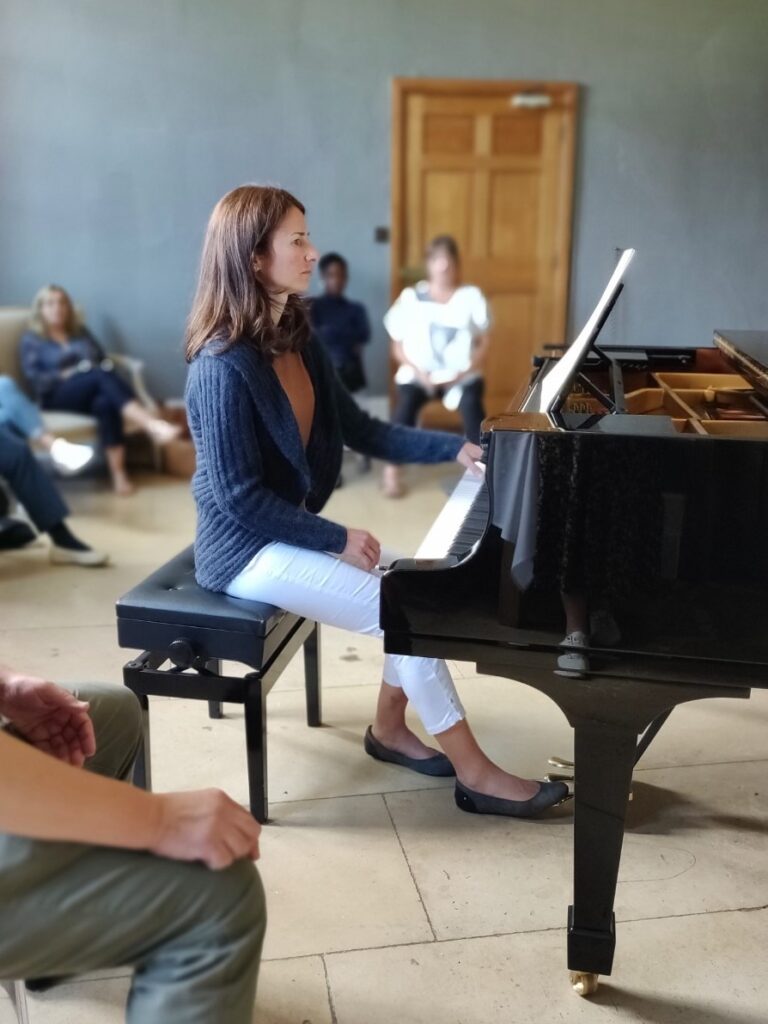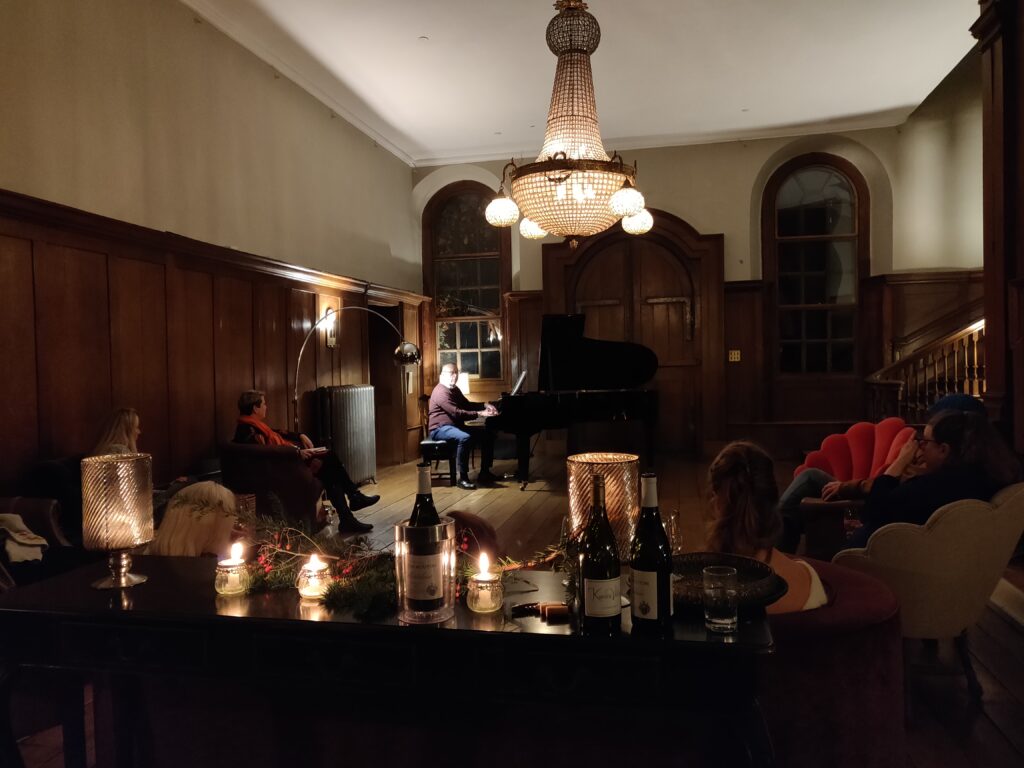Reality
Working towards exams or a particular special performance can be great at focussing our practice and refining our technique and piano playing. Sometimes, however, we can look back on a year of devotion to our passion and realise we have two or three pieces really under our belt, but our repertoire is rather on the slim side!
Why does having a broad repertoire matter?
- It feels good! It’s exciting exploring the rich repertoire of not only our own nation’s musical history and contemporary musical culture, but also the world’s.
- It educates our ears. Playing music across the Western classical musical periods by a multitude of different composers and backgrounds – as well as other genres and musical cultures – not only informs our own playing and technique, but also our understanding of harmony, melody, form, musicality… The list goes on!
- It stops us getting bored. (Very few people can practise the same piece with tunnel vision for months on end.)
- It stops our audience – and nearest and dearest – getting bored!
- It keeps us on our toes. Different pieces provide different challenges.
- It keeps our practice fresh, refining our approach to practice in learning a new piece.
- It helps us to measure progress: Regularly progressing onto pieces with slight increases of difficulty (rather than slogging through one hideously challenging piece for years ), can only be a good thing for motivation!
- It’s always good to have a piece up your sleeve for different occasions and social settings.
How do we discover new pieces?
Sometimes we can get into a bit of a rut and not know what to pursue next. Here are 10 ideas to give you some new repertoire inspiration.
- Listen, listen, listen! Live concerts, piano clubs and meet ups, the radio…
- Keep a “to learn” list on your phone and make a note whenever something catches your ear.
- Use the “suggested listening” on your streaming service.
- Use collated playlists on your streaming service.
- Let YouTube roll… Input a favourite piece into YouTube and let is automatically move onto the next video after it has finished. See what you discover!
- Go old school and explore your local music shop. There are plenty of beautiful collections of pieces, old and new, conveniently collated by editors and composers.
- Ask on a forum. Piano Network UK is a thriving Facebook community for UK piano enthusiasts. Ask for recommendations, and you’ll receive plenty of replies!
- Read reviews. There are some fantastic piano educators, composers and bloggers out there. They regularly review new publications and make their own suggestions. You might try Andrew Eales’ Piano Dao, Frances Wilson’s Cross-eyed Pianist and David Barton’s Creative Notes blog to name but a few!
- Explore historic set pieces from your favourite exam board. You can find second-hand books online two-a-penny!
- Explore a music library. You will have your own favourite online music library. The free IMSLP website and/ or app is an invaluable tool. We have a wonderful music library here at Finchcocks, which guests are very welcome to explore and play from during their stay with us!
Ask an expert
On our most recent course, Finchcocks tutor and creator of Practising the Piano Graham Fitch played our Upper Intermediate guests a charming collection of pieces to inspire. Sat in the main hall, guests soaked up the salon-style concert with a glass of wine and a cosy fire and listened to their tutor play the family Bosendorfer.
Here’s the programme!
Happy exploring!




